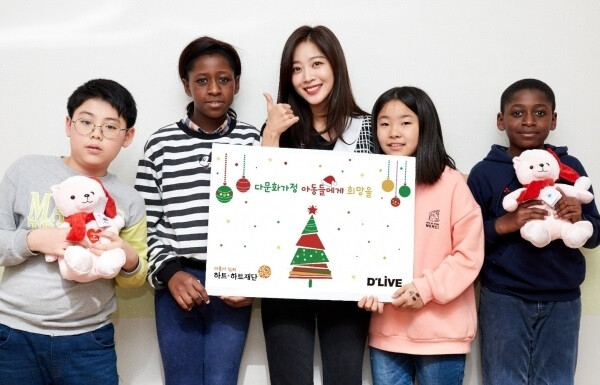
Over the past five years, the population diversity index for children aged 6 and under in South Korea has surged by over 45%, indicating a rapid increase in the proportion of children from multicultural families and immigrant backgrounds. This trend foreshadows a drastic rise in the proportion of "multicultural second-generation" individuals in schools and local communities within the next 10 to 20 years, leading to growing calls for the urgent expansion of childcare and educational infrastructure.
Infant and Toddler Population Diversity Growing 5 Times Faster Than National Average
According to the 'Calculation and Utilization of Regional Population Diversity Index' report by the Korea Institute for Health and Social Affairs, the population diversity index for infants and toddlers aged 6 and under rose from 0.0419 in 2018 to 0.0609 in 2022, a 45.3% increase. Compared to the overall population diversity index, which increased by 7.79% (from 0.0527 to 0.0568) during the same period, the growth in diversity among the infant and toddler demographic is overwhelmingly higher. The population diversity index is a metric that indicates how diverse the population of a specific region or group is, with values ranging from 0 (completely homogeneous) to 1 (completely heterogeneous). It is influenced by factors such as the number of foreign infants and toddlers, second-generation children from multicultural families with immigrant spouses, and children born to foreign seasonal workers and migrant worker families.
Notably, among the top 10 regions with a high infant and toddler population diversity index, four are concentrated in the Seoul Metropolitan Area: Paju-si in Gyeonggi Province, Bupyeong-gu in Incheon, Seocho-gu in Seoul, and Ansan-si in Gyeonggi Province. The remaining six are in non-capital regions, including Chungju-si in North Chungcheong Province and Gyeongju-si in North Gyeongsang Province. By nationality, individuals from Southeast and South Asia are widely distributed across the country, primarily in agricultural and fishing villages and industrial complexes. Chinese communities are concentrated in the southwestern metropolitan area and Incheon's Chinatown, while Central Asian and Russian populations are rapidly increasing in manufacturing zones in southern Gyeonggi Province and coastal areas of South Gyeongsang Province. The report analyzes that these phenomena are a result of the spread of foreign workers' employment and marriage immigration routes along major industrial and transportation axes, as well as increased foreign residency due to policies aimed at resolving labor shortages and vitalizing rural areas.
Inadequate Educational Foundation: Government's "Learn on Your Own" Policy Limitations
Despite this rapid increase in population diversity, concerns are being raised about the inadequacy of the government's support policies for multicultural and foreign infants and toddlers. Currently, policies for the immigrant-background population in South Korea have primarily been pursued within the framework of "multicultural policies." Recently, there have been attempts at policy shifts, including the inclusion of a foreign policy division as part of efforts to expand population resources in response to low birth rates and an aging society. However, practical support systems for infants and toddlers mostly remain limited to childcare fee support by local governments. Even then, only 86 (38%) of the 229 local governments nationwide have established legal grounds for this, and only 62 (27%) actually provide childcare fee support.
A greater problem is the lack of fundamental support for overcoming language and cultural barriers. Childcare fee support alone cannot fundamentally resolve language and cultural barriers. There is an urgent need for multilingual information provision and the deployment of cultural mediators, considering the specific circumstances of multicultural and foreign households.
The deficiencies in the education sector are even more severe. According to the Ministry of Education, as of 2023, the capacity rate of Korean language classes compared to the number of foreign and mid-entry students is merely 10.3%. This means that only 1 out of 10 students who struggle with Korean and experience learning difficulties are assigned to a class that provides intensive Korean language education. In contrast, one multicultural instructor is responsible for 74 students, making effective educational support difficult. The 2023 report by ChildFund Korea, an organization specializing in child welfare, pointed out the absence of a basic law on multicultural education as the biggest problem, criticizing that this lack prevents the establishment of mid-to-long-term plans. As the number of schools with a high concentration of multicultural students increases and the educational policy environment changes, there is an urgent need to establish legal grounds for multicultural student education to address these changes.
The current policy stance reveals the government's complacent awareness of rapidly changing demographic shifts. From a long-term perspective, it is urgent to establish an integrated childcare and education system to enable multicultural and foreign infants and toddlers to grow into healthy members of Korean society and realize their potential. Otherwise, we will lose a crucial human resource for the future society.
[Copyright (c) Global Economic Times. All Rights Reserved.]





























